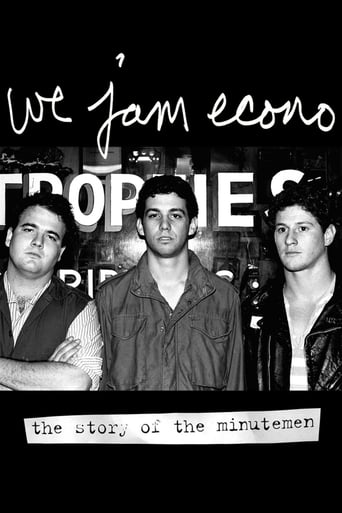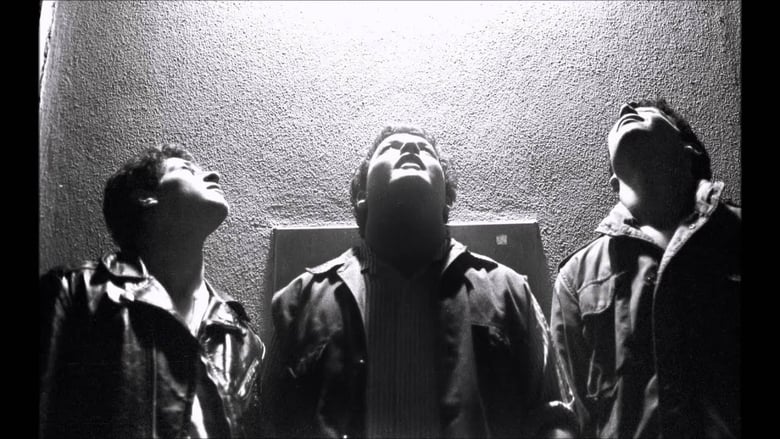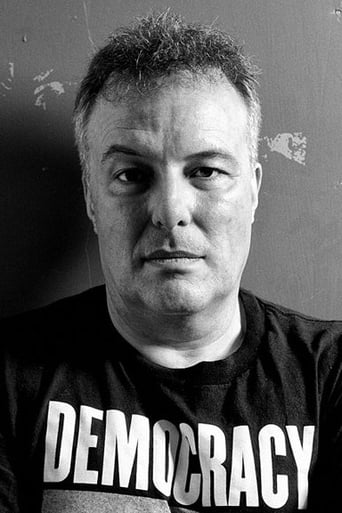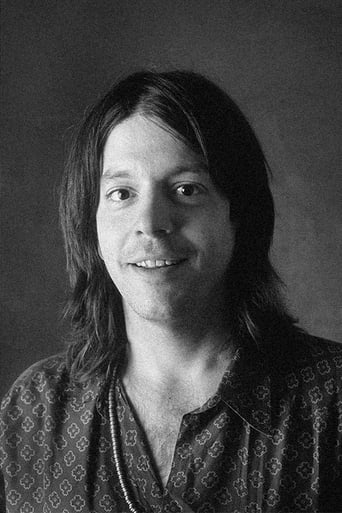

We Jam Econo: The Story of the Minutemen (2005)
A feature-length documentary chronicling early '80s punk rock band the Minutemen, from their beginnings in San Pedro, California, to their demise after the death of singer D. Boon in 1985.
Watch Trailer
Cast


Reviews
You won't be disappointed!
So much average
Excellent, Without a doubt!!
As Good As It Gets
I love The Minuteman, so it would be very hard for me to dislike this documentary. Still, I thought it had some pretty serious structural problems. The backbone of the film is Mike Watt telling the story of the band in chronological order, using primarily clips from two lengthy interviews. This part of the film tells a compelling story. It is inter cut with performance footage and snippets of interviews with dozens of other major and minor figures in the band's story. This talking head footage has a tendency to undermine the film at time. The director obviously collected so much interview footage that he seems compelled to use it, but what's being said is often repetitive and not pertinent to the point that Watt's story has reached. It gives the film a disorganized, scatter shot feel that really undermines its effectiveness at times.
It's difficult to know what to say about this well-made, honest, and truly documentary film.On the one hand, as a fan of the band I'm grateful to have such a nice retelling of their story, crisply paced, and full of details I'd never heard.On the other hand, I found myself at the end of it rather sad and swimming in nostalgia, and there's something so creepily unpunkrock about that, I'm not sure the basic message of keep-on-moving, do-it-yourself came out in the end.I suspect that's a distinction between the perspective of the filmmakers, who came upon their subject matter after D. Boon's death and the split-up of the group, versus my own perspective, as a contemporary fan of the group (the number of familiar faces appearing on screen was astonishing.) As such, I also suspect the reaction of the viewer will be quite different depending on whether you were there or whether this is increasingly ancient history.Here's what stands out: -- this is an extremely honest and true-to-the-spirit-of-the-group film in its DVD release format (the one most of us will see, given the lack of major theatrical distribution). The filmmakers have crammed two disks with tons of extras: the documentary film itself and another 20 or so outtakes that didn't really fit into the narrative structure, but virtually all of which are amusing or edifying by themselves; three music videos the band and its friends put together, each with their own amusing moments ("This Ain't No Picnic" had me laughing aloud); an unedited interview with the band from 1984; and on disc 2, three more or less complete performances by the band, one from 1980 that shows the band at its coalescent moment and fresh on the scene, one from a college gig in 1984 that shows the band at it mature and bouncy best, and a sort of Minutemen-unplugged all-acoustic set performed for a cable access channel late in the band's existence. It's a great bargain for fans, and while I'd point newcomers to the still-in-print recordings first, this is a fantastic way of completing the band's catalog.As a standalone documentary, it certainly tells the story well enough in a conventional narrative that it stands as history.-- the band's uniqueness among punk bands stands out with the distance of time, and at the heart of what the Minutemen were is this strangely undying question of what it meant (or means) to be 'punk'. The band challenged authority constantly in the sense they had no training but what they provided to themselves, didn't care about popular notions of success, and had a sound that defied even the conventions of punk: jazzy, funky, explosive, melodic and abrupt all at the same time. But it's important to note, as the film makes evident, the Minutemen defied most of the emerging genre conventions of stereotyped punk. They didn't look like "punks", they didn't sound like the Ramones, they had an awareness of the world around them that went beyond the self-indulgent bemoaning of the here and now. Just when you were up and thrashing this song was over. The Minutemen stood out because they were constructive; nihilists neither in spirit nor deed.-- what I did find frustrating about the film, though, was it never quite closed on the question of how the Minutemen truly got from playing "Smoke on the Water" to penning "Double Nickels on a Dime". We get a sort of catalog answer, in that D. and Mike Watt grew up together and were very simpatico, but is that all there is to the story? There are hints everywhere, but ultimately the interviewees seemed a bit too close to the band to add enough perspective on this question. Of course, this is often the big mystery in music, from Jimi Hendrix to Mozart, where does that extra touch of genius come from? It may be unfair of me to expect an answer in 'We Jam Econo'.-- Context or lack thereof: the film is a bit of a hagiography - there's not a lot of discussion about the band's warts or occasional lack of selectivity in its recorded output, and the negativisms of the scene are dealt with somewhat obliquely (mainly focussing on the gobbing second-wave punk wannabes and thrashers). It's probably that there just wasn't enough time to come out with a fast-paced informative film and deal with more of the complexities of context that shaped the band. It's one thing to note three relatively untutored guys in a working class / military town railing against the creative and political repression of Reagan's America, but with twenty years between the film and the demise of the band, we might be able to start explaining to future generations just what it was like to live under the cloud of nuclear annihilation while living on government cheese. As such, this ended up playing more like a fan's document than broader history. Nothing wrong with that, mind you; it's just there's another movie to be made sometime.-- I also wish there had been a little more attention paid in a way to George Hurley's role in the band. He co-wrote a lot of the songs, and while due credit is given to his incredibly technical, creative drumming, there's little about George's background relative to the details about the relationship between D. and Mike. The drummer makes the band.I do warmly and highly recommend this movie to anybody with an interest not just in the Minutemen per se but pop music history in general. They were paradoxically sui generis while epitomizing the way bands lived, worked, and died back in the day. This is a primary document in that sense.
Perhaps the best thing about this documentary is that it manages to present a deep and rounded enough picture of a great subject that it will have substantial appeal both to the most devoted long-time Minutemen fan and to those who've never heard of them or experienced their music. For those who've been enjoying the music of D. Boon, Mike Watt, and George Hurley for years, some of the content will be familiar by now, but the story takes on fresh vitality and power when told by the band members themselves--both from archival interviews and in fresh footage of the surviving members.I wish dearly that this film or something like it had been around 20 years ago since the Minutemen, for all of their magic and considerable virtues, are not only an acquired taste but a somewhat difficult one to acquire. As becomes the focus of many of the testimonials from their contemporaries, they stubbornly stuck out as unique and eccentric even in the (rapidly-calcifying) LA punk scene. In this world of misfits who tended to rush to cookie-cutter formula for some semblance of security or solidarity, the Minutemen insisted on following their own muse, creating not only their own style of music but their own ways of working, their own lingo, and--most of all--their own deeply personal (and yet highly political) way of looking at the world. Because of this rejection of the quick, easy 3-chord punk format and all of its attendant accessories (simple anti-authority anger and lyrics, ripped clothes, tough snarling image), the Minutemen never gave their audience any easy footholds to get into the music. Instead, it took careful, sensitive, and repeated listenings to see the very human spirit(s) behind the music, to appreciate the revolutionary fervor and self-deprecating humor of their outlook. It's easy to forget after 20 years of fanhood just how hard it was and how long it took to really appreciate them, but this film will make the chore much less painful for prospective new converts, since the guys themselves and their most sympathetic fans and friends get to tell the story and set the record straight. As Watt himself muses at one point, so much of what they did was wildly misunderstood at the time, which is why there was and is a burning need for a film like this--it allows us to finally get the clearest look yet at the inner workings of a truly unique, intelligent, and heartfelt band.This brings us to another reason why it's so wonderful even for those who don't know the Minutemen, or even those who can't or won't enjoy the music--there's a great, great story at the heart of this film, the tale of a rare and wondrous creative friendship sundered by a senseless loss that is tempered by the brave and inspiring way in which Watt in particular has continued to wave the banner of honesty, homespun truth, and DIY. D. Boon's untimely demise is also made meaningful by the obvious reverence and respect shown by so many of his contemporaries, by the clear spiritual influence he has had on so many other musicians. Though gone, his music and spirit lives on, never more perfectly captured than in this loving documentary.
I'm a sixty something life-long fan of rock (well at least since the mid 1950s), and lived in California and never heard of the Minutemen that I can remember. Maybe I did hear of them but thought they had something to do with Paul Revere. I'm not sure why I rented the DVD but I'm happy I did.The interviews, the live shows are raw like the music The Minutemen made. I think their lyrics and what they sing about to be inspired. They aren't afraid to speak the truth (whatever that is!) and do it in an unique and insistent fashion. In the interview of the three band mates they come across as grounded, thoughtful, humble, and connected to one another. D. Boone, Mike Watt, George Hurley rock. I wish I'd have seen them live.




